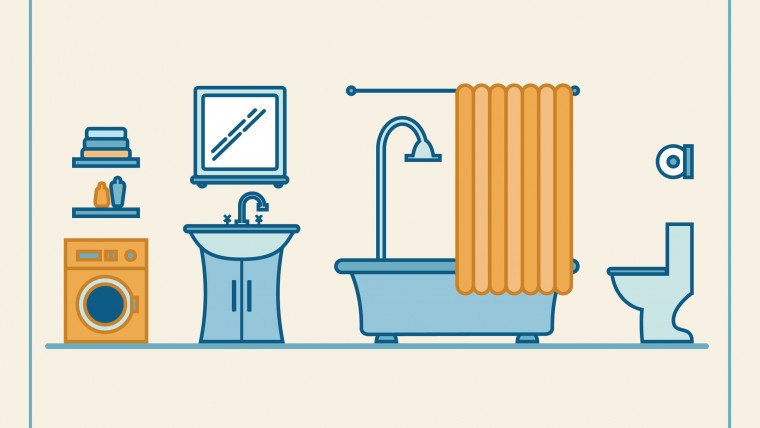You’ve made up your mind: you’re going to buy a condo in a complex. But are you sure that you’ll like it? Do you know all there is to know about living in a condo? Before taking this leap, take a look at the next few paragraphs.
Lise loves living in a condo: “After my husband passed away, I bought a condo in a complex with 120 units,” she explains. “Being surrounded by other people makes me feel safe and I don’t have to worry about maintenance. Plus, with the gym, pool and spa, it feels like I’m living at a hotel.”
Tired of having to take care of their yard, Marcel and Pauline sold the house they had owned for 40 years to purchase a condo in a small complex. But the move wasn’t without its challenges. “The proximity of our neighbours and their lifestyles quickly became irritating,” Marcel admitted. “The noise too. And there were also disagreements between owners. Two years later we sold our condo.”
Unfortunately, many people jump into buying a condo before investigating the details of the condominium regulations. The classic mistake: thinking that the only difference between a house and a condo is less work outside. In reality, condominiums are like little societies. Consequently, it’s better that you have some specific social skills because you’ll be living in close quarters with your neighbours. You’ll have to learn to live with others and their use of common areas, and you have to be willing to make compromises. You may live on the upper floors and therefore it may be harder to access the outside and greenery. You’ll also be subject to the Civil Code of Quebec that is responsible for managing condominiums, as well as the internal rules and regulations for the condominium itself. Decisions are made collectively. Even if you don’t agree, the majority rules. However, unless you live in a smaller condominium where residents have to manage tasks, you won’t be responsible for garbage, building maintenance, cutting the grass or shovelling the snow. And you may benefit from various amenities: pool, spa, gym, room for hosting big groups, security guard, etc.
That being said, living in a large condominium can also have its benefits. With smaller complexes, relationships between residents are quite personal. Disagreements can become more intense and you have to compromise more often on renovations, especially if one of the residents doesn’t have the means for the proposed improvements. Instead, in a large complex, it’s the board of directions that makes the decisions. Another important element: buy a condo whose residents are in a similar financial situation as you. If you buy a luxury condo you won’t be able to keep up with the common fees.
The ins and outs of divided co-ownership
In order to make smart choices and to avoid mistakes, you should also take the time to learn about divided co-ownership. This means that the condominium is split into portions. Residents own a portion, meaning a housing unit that belongs to them exclusively. Each resident has his/her respective mortgage. Therefore none of the residents is threatened by the neighbour’s mortgage terms. In addition, when someone buys a unit, the purchaser is allocated a share corresponding to the relative value of his/her portion. This is calculated based on various criteria, including unit size and location. For example, if you live on the tenth floor or your apartment faces a street corner, you get a better view than many others. Your relative value will therefore be higher. This quota is important since it establishes the number of votes to which you are entitled in a vote of the meeting of the co-owners, as well as your contribution to the common expenses. As for the common areas (hall, stairs, corridors, laundry room, elevators, etc.), they belong to all the residents.
Obviously, for things to run smoothly, things must be managed meticulously. This is where the union of co-owners comes into play. A board of directors elected by the co-owners manages the union’s business. Its mission is to ensure the maintenance of the building, its own continuance and its administration. They deal with the budget, the costs of co-ownership, the collection of money, legal proceedings, compliance with regulations, and so on. The union has a second component: the condominium assembly. The latter meet annually to adopt financial statements, to vote on amendments to the by-laws, to elect the members of the board of directors. But in order to be able to manage the operation and maintenance of the building, the union needs finances. Since the common areas belong to all residents, each must pay monthly condo fees for the regular maintenance of the building and green spaces, services (caretaker and others), equipment (swimming pool, garden, etc.), insurance for common areas, snow removal, etc. These expenses also include a contingency fund to pay for major repairs and replacements (roofing, windows, etc.) of the common areas and unforeseen repairs. Here’s a tip: make sure the contingency fund is sufficiently funded and that all current and future expenditures are planned and well funded. Unfortunately, the contingency fund is often undervalued so that excessive condo fees don’t scare off buyers. This is the case in small and medium-sized condominiums. If the contingency fund is not sufficient to pay for the urgent work, each resident will have to participate in a special contribution to settle the expenses, which can involve large amounts and in a short time. Don’t forget to inform yourself about the work in progress and to come. You will get a glimpse of what to expect in the future.
Focus on Important Documents
Before buying a condo, take the time to obtain all the relevant documents and above all else, to read them from A to Z. If necessary, ask a professional – lawyer or notary – to understand all the intricacies. Certificate of location. Prepared by a land surveyor, this provides information about the location of the building, the land, as well as the common and private areas. You will know if changes have been made to your condo and if they may affect common areas. If this is the case, ask the board of directors if the work was authorized. If you fail to do so, you may be required to return the property to its original condition and at your expense. In a condominium, it is forbidden to touch the common areas without the approval of all the residents or the board of directors. Renovations in private units, such as the replacement of cabinets or floor coverings, also require an authorization.
Register of the condominium. This represents all the union of co-owners’ documents that exist, including the maintenance booklet, minutes, agendas, resolutions of the board of directors and the meeting of co-owners, operating costs and budgets, changes to regulations, residents’ contact information, legal proceedings, union insurance, etc. The union is required to keep these documents by law and make them available to all residents of the condominium. With regards to insurance, the union of co-owners is required to get insurance for fire and theft. The building must be insured on a new value basis; check that there is consistent professional evaluation to update the value. The union must also take out civil liability insurance to protect itself against damage caused to the third party and third party liability insurance for union directors. As for the co-owners, they have the responsibility to insure their own property, as well as the leasing improvements of their unit, and to have liability insurance.
Declaration of co-ownership. This is the most important document for a new buyer of a condo. It will give you a good overview of the lifestyle that awaits you. This notarial act governs the relationships and links between the co-owners and the union. It has three parts.
The constitution. This contains information on the division of common and private areas and defines the relative value of each portion in relation to the entire building. It also includes the purpose of the building, that is to say its function (commercial or residential). This information is important as a commercial building may affect the insurance premium for common areas. In addition, it specifies the respective powers and duties of the board of directors, of the union and the residents’ assembly. There are also uses reserved for certain co-owners. It may be that common areas, a balcony or a terrace for example, are for the exclusive use of certain co-owners.
The regulations of the building. They list all the regulations relating to the use and maintenance of private and common areas, such as the presence of animals, the use of common spaces, the installation of a satellite dish, a clothesline or an awning, the use of a barbecue, etc. Each condominium has its own regulations.
The description of the portions. This includes the cadastral designation of the private and common areas of the building.
Status Certificate: protect yourself
The Civil Code of Québec requires the new purchaser of a condominium to pay all common expenses that remain unpaid by the vendor at the time of acquisition. Before purchasing, check with the notary or condominium if all costs have been paid. Better yet, send a status certificate to the condominium union to find out if the seller still owes money to the co-ownership. The union has 15 days to provide the information. If they fail to reply within this time limit, you will no longer be held responsible for the former owner’s debt.
Need help?
Contact a residence advisor to help you in your search for a residence
844 422-2555
Service free of charge for beneficiaries
Member of ACHQ
Need help?
Contact a qualified residence advisor for help with your search and accompany you until the signing of your lease for FREE.
Our assistance service for the elderly is FREE*
844 422-2555
* Our residence advisors are paid by the network of private residences in Quebec certified by the Ministry of Health and Social Services.





